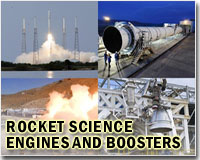 |
Moscow (UPI) Dec 10, 2010 Russia's loss of three satellites during launch this week was caused by an off-course booster rocket that had been given too much fuel, officials said. The estimated 1-1/2 to 2 tons of excessive fuel caused the rocket to deviate from its course and the satellites crashed into the Pacific Ocean, RIA Novosti reported Friday. "According to preliminary information, the problem was not with the fuel service unit at the launching site, but with one of the sensors showing the fuel level," Gennady Raikunov, head of the investigation commission, said. "We do not rule out the factor of human error," he said. Raikunov said the Russian space rocket corporation Energia may be linked to the incident. The Sunday launch was intended to complete the forming of Russia's Glonass navigation system, similar to the U.S. GPS system. However, the Proton-M rocket, launched from the Baikonur Space Center in Kazakhstan, deviated from its course by 8 degrees, resulting in the loss of the satellites. The spacecraft fell into the Pacific Ocean to the northwest of Hawaii, RIA Novosti reported.
Share This Article With Planet Earth
Related Links Rocket Science News at Space-Travel.Com
 Russia probes navigation system spending after crash
Russia probes navigation system spending after crashMoscow (AFP) Dec 7, 2010 Russia launched a probe Tuesday into whether the money assigned to create a satellite navigation rival to the US GPS system was being wisely spent, prosecutors said, after the latest launch ended in failure. The decision followed the failed launch Sunday of three Glonass satellites that were to have completed a satellite constellation whose development had been begun by the Soviet Union back ... read more |
|
| The content herein, unless otherwise known to be public domain, are Copyright 1995-2010 - SpaceDaily. AFP and UPI Wire Stories are copyright Agence France-Presse and United Press International. ESA Portal Reports are copyright European Space Agency. All NASA sourced material is public domain. Additional copyrights may apply in whole or part to other bona fide parties. Advertising does not imply endorsement,agreement or approval of any opinions, statements or information provided by SpaceDaily on any Web page published or hosted by SpaceDaily. Privacy Statement |